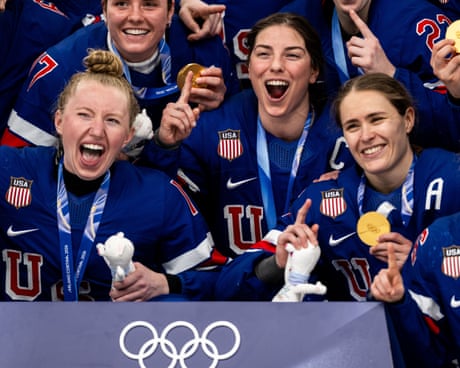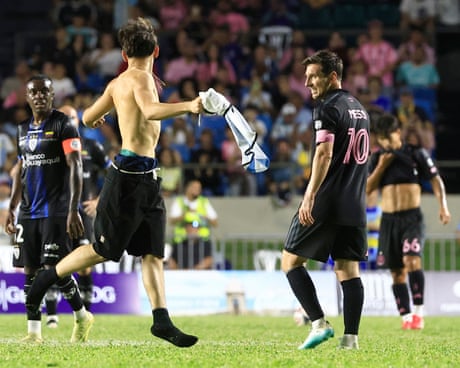
On Thursday afternoon, Toronto Raptors president Masai Ujiri got in front of assembled media members via a zoom call from his home for his season-ending press availability.
The typical topics were discussed. He gave his final appraisal of a team that was really good and exceeded many expectations but ultimately fell short of its lofty championship goals. He touched on his contract status and that of his general manager, Bobby Webster. He heaped praise on Kyle Lowry, and provided encouragement for his budding star, Pascal Siakam. And he spoke about his disappointment in seeing the racist treatment Siakam was recently subjected to on social media — a revolting reaction to his disappointing performance in the NBA’s bubble.
Apart from having to address your star player being the subject of racist taunts, the proceedings felt pretty business-as-usual until a thoughtful question from ESPN’s Tim Bontemps prompted an impassioned stream-of-consciousness answer from Ujiri that might as well have been a TED talk, offering his viewpoint on the racial reckoning going on in the world and how he has been centred in it. Ujiri spoke without hesitation for more than four minutes.
In a media climate so rich in cliches, hearing an executive describe not being able to sleep after footage of his own encounter with racialized policing was released truly stands outs.
But sadly, that eloquent response was not the greatest takeaway on Thursday, the exchange that ended up trending on Twitter. The outcome wasn’t greater empathy for Ujiri or heightened resolve in the fight against anti-Black racism. And that’s because, in 2020, distractions from the important conversations come in all shapes and sizes.
For those who missed the avail and the Twitter conversation it sparked, here is the question that followed Ujiri’s answer to Bontemps, asked by Steve Simmons of the Toronto Sun: “You’re in a unique position being the only Canadian team in the NBA, and in charge of the only Canadian team in the NBA. Sometimes you see issues out there that really don’t pertain to this country at all. And I’m wondering, if in the city that you live in and operate in, shootings in Toronto are up 180 per cent since you came and joined the Raptors. Death by gunfire is up by over 180 per cent. Is it time for you and the Raptors to get involved in more local issues, to try and work with a city that’s seeing crime at a rate it’s never seen before?”
Ujiri had just spoken candidly and vulnerably about what the fight for Black lives has meant to him personally. To follow that up with “but what about gun violence?” works to discredit the intention of everything Ujiri said before.
Is anybody counting gun death stats since Brendan Shannahan, Mark Shapiro or Bill Manning were hired? Can anyone find footage of any of them being asked about crime stats or their team’s supposed responsibility to fight crime? Why are you asking the only Black team president in both the NBA and Canadian sports a question that’s better suited for the mayor or premier?
Basically, Steve Simmons asked a man who was a victim of systemic racism if the Toronto Raptors should devote less energy to combating systematic racism.
Ujiri’s response was measured. He acknowledged there is a problem, saying, “It’s so weird that you said that because, as I was walking out of my room today, my wife was looking at her phone and she said to me, ‘The shootings and the killings are becoming too much here in Toronto.’ And we’ve talked about this a lot. And we need to do something about it.”
But he also made sure to counter the “what about”-ism. “We are not omitted from all this stuff that’s going on in the world,” Ujiri said. “And I hear what you are saying, but there’s a lot of — there is racism here. We sometimes think that, oh, you know, we are not included in this in Canada. There are huge issues here. Sometimes we are drawn thin in what we can do and where we can be and in issues we talk on and how we can affect — we can’t be everywhere. But I know that this is a subject that we are going to talk about. We are going to have to address and help in as many ways that we can.”
You shouldn’t need the grace and tact of an Obama to handle a postseason presser. As the conventional wisdom has it: when they go low, we go high. I just wish it didn’t have to be applied so often. And I wish there were more of us in the room asking the questions.
This job is a privilege, one that many people from minority communities dream of and then grind to achieve. There is real currency to the access we’re granted, and wasting it so callously is disappointing. The ability to do that is its own privilege.
It wasn’t a BIPOC journalist who asked this question, but as always, we have to come in and clean up the mess afterward. Kayla Grey, an anchor at TSN and a Black woman, followed up on Simmons by asking Ujiri about the frustration of having to answer “but what about” questions. “It is frustrating, you know how it is,” Ujiri said. “The matter at hand right now to me is Black Lives Matter.”
I’ve written about the lack of diversity in Canadian sports media before. This whole fiasco was yet another example of why representation is so important. The Canadian BIPOC contingent at Raptors’ press conferences usually consists of Grey, freelancer Vivek Jacob, William Lou, Alex Wong and Seerat Sohi of Yahoo Canada, and Sportsnet’s basketball editor, Steven Loung. In addition to the beat reporters are voices like Sherman Hamilton, Paul Jones, Akil Augustine and Duane Watson who all cover the team in various compacities on MLSE platforms. But independent outlets clearly aren’t meeting the challenge of having their coverage reflect the diversity of the team’s fan base or the city of Toronto.
We have to think about the voices we elevate in Canada; what those choices say about us and what they mean for the coverage that we get. More BIPOC voices in sports media would make it harder for attitudes like the ones Simmons showcases, well intentioned or not, to take root and take up space. And new tools and initiatives — like the website hirebipoc.ca — are making it easier and easier for us to get there. Media organizations have no excuse.
In the wake of something like this, the absurdity and hypocrisy of BIPOC media members getting told to “stick to sports” all the time jumps out yet again. After asking his question on gun violence, Simmons was heavily criticized, but he wasn’t hit with that same old refrain.
Journalists like Grey don’t have the benefit of just sticking to sports because they are constantly being burdened with explaining racism, explaining the value of Black lives, explaining the need for BIPOC voices, explaining our humanity. It would be much easier to stick to sports if these points, if this coverage, was a burden we shared more equally with our white colleagues.
It’s worth noting that in Toronto we’ve seen a start. Jacob and The Athletic’s Blake Murphy organized and mobilized Raptors media members to tweet in unison about anti-Black racism and similar social justice causes just before tipoff on gamedays — using their platform to speak to a captive audience.
Still, Toronto is over 50 per cent non-white. Those demographics are not at all reflected in the coverage of the Raptors, and the basketball beat is far more diverse than the NHL, MLB, CFL and MLS equivalents.
As Pacinthe Mattar wrote in a recent piece for The Walrus: “This setup often ends up placing the responsibility on the Only Ones in the Room to guarantee a spectrum of experiences and stories in news coverage and to point out where coverage misses the mark.”
Later in Mattar’s piece, she quotes Asmaa Malik, a professor at Ryerson University’s School of Journalism, expanding on the point: “There’s an idea in many Canadian newsrooms that, if you have one person who checks the box, then you’re covered.”
Grey may have a had a great question for Ujiri about the draft or free agency or the salary cap or his contract status or his Giants of Africa charity or about being reunited with his family after months away in the bubble. Simmons’s question robbed her of the chance to ask it. The privilege of asking what you want to ask and reporting on what you want to report on is one so often denied to BIPOC media members because we always carry an unequal burden in insuring coverage is fair and balanced and, thus, more accurate.
The gun violence issue in Toronto is real and it has to improve. And so does the issue of media representation. For either of those goals to be accomplished, Black lives have to matter.
Neither are tasks that should be dropped on the desk of Masai Ujiri — he’s got a basketball team to run. But he’ll likely have a hand in healing both wounds because when you’re Black, just doing the job you’re hired for is never enough.




